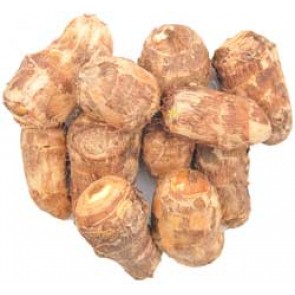Description
Although the green banana is simply an unripened yellow banana, it has different uses. While you can eat the yellow banana immediately after peeling, the green banana is best eaten cooked, either boiled or fried. Nutritionally, the green banana is a good source of fiber, vitamins and minerals, and contains a starch that may help control blood sugar, manage weight and lower blood cholesterol levels.
Good Source of Resistance Starch
Resistant starch is a type of starch that cannot be broken down by enzymes in your digestive system and, therefore, acts more like a fiber than a starch. Green bananas contain a high amount of resistant starch, according to a 2010 article published in “Pacific Health Dialog.” Including foods high in resistant starch in your diet, like the green banana, may reduce your risk of diabetes by aiding in blood sugar control,and heart disease by helping to lower blood cholesterol levels.
Good Source of Fiber
In addition to the resistant starch, green bananas are also a good source of fiber. A 1-cup serving of boiled green bananas contains 3.6 grams of fiber, meeting 14 percent of your daily value. The percent daily value is based on a 2,000-calorie diet for a healthy adult. Fiber can also reduce risk of diabetes and heart disease. In addition, fiber in food slows digestion, helping you feel full longer, aiding in weight control.
High in Potassium
Like the ripened yellow banana, the green banana is high in potassium. A 1-cup serving of boiled green bananas contains 531 milligrams of potassium. Including more high-potassium foods in your diet may aid in blood pressure control. The American Heart Association recommends consuming 4,700 milligrams of potassium a day for heart health. However, high potassium foods are not safe for everyone. If you have high blood potassium levels or kidney disease, you should talk to your doctor to determine how foods like green bananas can fit into your diet plan.
High in Vitamin B-6
Green bananas are also high in vitamin B-6, with a 1-cup boiled serving containing 39 percent of your daily value. Vitamin B-6 plays an important role in more than 100 enzymatic reactions in your body. It is also necessary for the formation of hemoglobin, the protein that carries oxygen in your body. Additionally, vitamin B-6 aids in blood sugar control.




Reviews
There are no reviews yet.